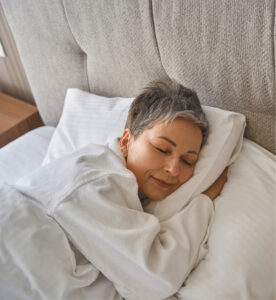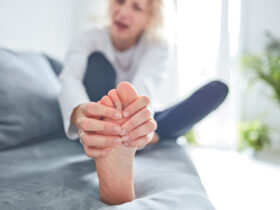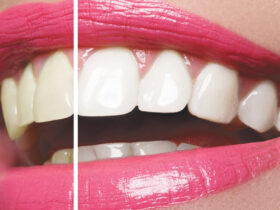Demystifying Sleep and the Rise of Orthosomnia
By Dr. Ernesto Eusebio
 As a sleep specialist, I often work to clarify misconceptions about sleep. Many patients, especially those struggling with insomnia, find that their issues stem from misunderstandings about their own sleep patterns. Sleep is an essential aspect of a healthy lifestyle, providing our bodies and brains with the opportunity for vital maintenance. During sleep, the brain remains active, with its activity peaking during REM sleep. However, this heightened activity serves a different purpose than during wakefulness: it prepares the brain for the coming day.
As a sleep specialist, I often work to clarify misconceptions about sleep. Many patients, especially those struggling with insomnia, find that their issues stem from misunderstandings about their own sleep patterns. Sleep is an essential aspect of a healthy lifestyle, providing our bodies and brains with the opportunity for vital maintenance. During sleep, the brain remains active, with its activity peaking during REM sleep. However, this heightened activity serves a different purpose than during wakefulness: it prepares the brain for the coming day.
Sleep disturbances can arise from various sources, but a particularly unique disruption is caused by our own preoccupation with obtaining sufficient sleep. The advent of sleep trackers, unfiltered information from the internet, and sometimes well-meaning but misleading advice from social media have fueled a growing obsession with achieving perfect sleep. This phenomenon has given rise to a newly recognized condition known as Orthosomnia.
What Is Orthosomnia?
Orthosomnia describes an excessive concern with achieving ideal sleep, often driven by data from wearable sleep tracking devices. Ironically, this pursuit can worsen sleep quality and exacerbate insomnia symptoms. As individuals become fixated on perfect sleep numbers, anxiety increases, maladaptive behaviors develop, and a frustrating cycle ensues—ultimately impairing sleep further. These patterns closely resemble the cognitive and behavioral traits seen in insomnia.
With these concerns in mind, I have written this article to demystify sleep and highlight some often overlooked but important aspects of healthy sleep.
Common Sleep Myths Debunked
Myth #1: More Sleep Is Always Better
Although sleep is restorative, more is not always better. Research indicates that each person has a “sweet spot” for sleep duration—falling below this threshold increases overall mortality, but so does exceeding it. For most individuals, the ideal amount of sleep is just over seven hours per night.
Myth #2: Everyone Should Sleep 7-8 Hours a Day
The common belief that everyone needs seven to eight hours of sleep is not entirely accurate. Most people need to spend that amount of time in bed to ensure adequate rest, but individual sleep needs vary. Genetics play a significant role, and some people function well with just five hours, while others—especially teenagers and young adults—may require nine to ten hours for optimal health.
Myth #3: You Can’t Recover Lost Sleep
Humans are remarkably adaptable, and while missing a night of sleep is unfortunate, it is not irreversible. A longer night after a poor one can be more restorative, but true recovery typically requires several consecutive nights of sufficient sleep—often seven to ten. Rather than viewing sleep debt as a loan that must be repaid all at once, think of it as a lease, requiring consistent payments over time to fully recover.
Myth #4: Sleeping with a Sleep Aid Is Better Than Poor Sleep
While medications like Zolpidem and common hypnotics may improve sleep metrics, studies have not shown significant reductions in disease or mortality from their use. In fact, most have demonstrated an increase in overall mortality. Some over-the-counter sleep aids are associated with dementia, while others can cause memory impairment, constipation, or urinary retention. For these reasons, sleep providers generally aim to manage insomnia and sleep disturbances without relying on sleep aids.
Myth #5: My Bad Day Is a Result of My Bad Night
Though sleep is important, attributing every difficult day to poor sleep can worsen both orthosomnia and insomnia. While insufficient sleep can make the day more challenging, most people operate with some sleep deprivation and still manage to function well. Attempting to force sleep often backfires, so it is best not to blame every bad day on a bad night. One certainty is that worrying about tomorrow at bedtime will lead to less sleep tonight.
Myth #6: I Can Always Tell When I Didn’t Sleep Enough
Sleep perception is often misleading. Some of the worst sleepers, such as those with severe sleep apnea, may feel they sleep well, while excellent sleepers sometimes report insomnia and poor sleep quality. This confusion is normal because sleep involves a temporary loss of consciousness—making it impossible to pinpoint when you actually fell asleep. Upon waking, assumptions are made about sleep quality, which may not reflect reality. This is why it’s advised not to check the clock repeatedly at night, as it can create false impressions about sleep duration.
Conclusion: Practical Steps for Healthy Sleep
If you are uncertain about your sleep, begin by ensuring you spend seven to eight hours in bed—up to one hour more if you are under 35. Sleep trackers can help monitor the time spent in bed. However, if you continue to experience sleepiness or feel that your sleep is not restorative, consult a sleep specialist. Early intervention is key to optimizing sleep health, just as with other medical conditions.
Accepting New Patients!
Sleep & Apnea Institute of Florida
(239)788-6500
www.saifsleep.com
23421 Walden Center Dr, Suite 100
Bonita Springs, FL 34134









